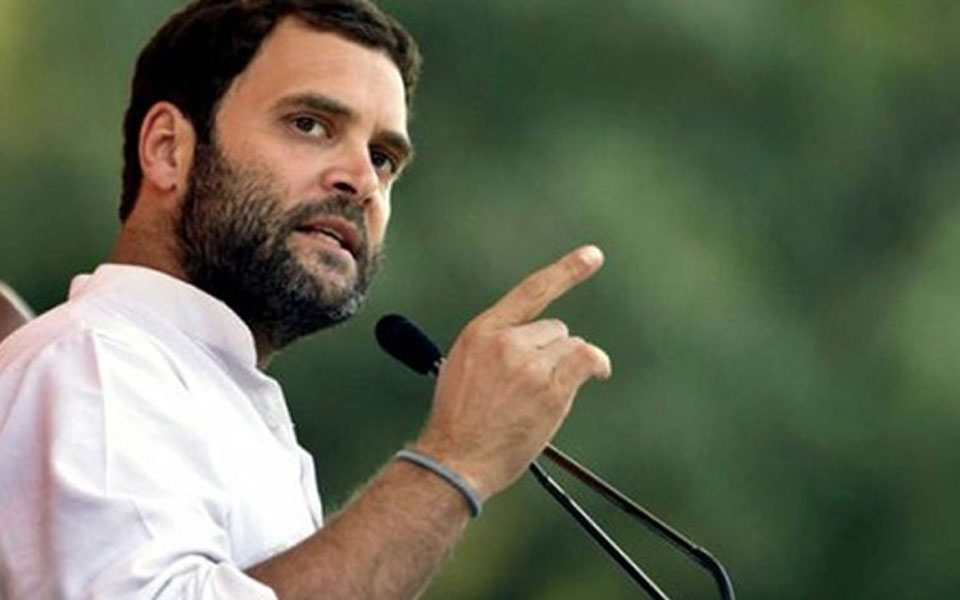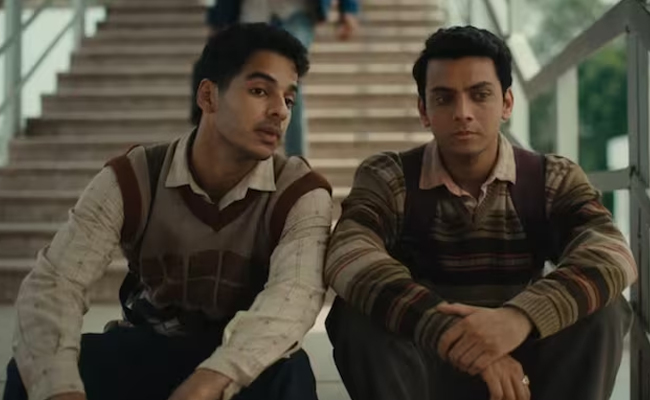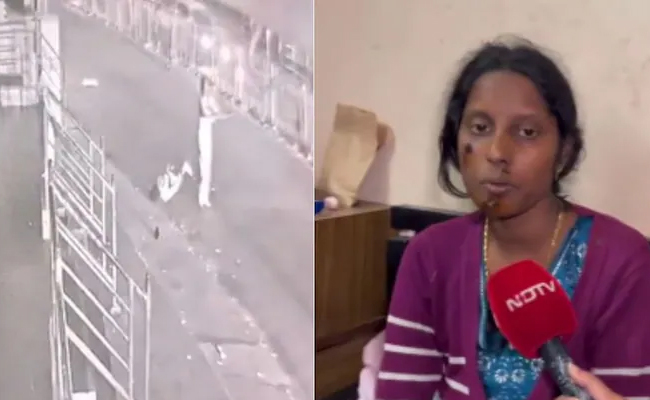New Delhi, Aug 9 : Congress President Rahul Gandhi on Thursday said the government's anti-Dalit mindset became clear when Prime Minister Narendra Modi rewarded with re-employment a judge who diluted an act that sought to deter atrocities against the marginalized.
He said the Bharatiya Janata Party and the governments it led at the Centre and in state had no space for Dalits in their hearts.
"If Modiji had space for Dalits in his heart, then the policies for Dalits would have been different," Gandhi said. The Congress leader was addressing a protest rally by Dalits and tribals at Janatar Mantar here.
Gandhi said when Modi was the Gujarat Chief Minister he wrote in a book that "Daliton ko safai karne se anand milta hai" (Dalits feel happy when they do cleaning work).
"This is his (Modi's) ideology," Gandhi said.
He said the Scheduled Castes and Scheduled Tribes (Prevention of Atrocities) Act was brought by the Congress when his father Rajiv Gandhi was the Prime Minister.
"But that was allowed to be diluted by Modiji. And the judge who diluted the act was given a promotion," he said, referring to the appointment of Justice A.K. Goel as the National Green Tribunal (NGT) Chairman
Justices Goel and U.U. Lalit had in a March 20 ruling laid down stringent safeguards, including provisions for anticipatory bail and a "preliminary enquiry" before registration of a case under the act, citing instances of its abuse for political or personal reasons.
The ruling angered Dalits. On July 6, Justice Goel retired from the Supreme Court. On the same day, he was appointed the NGT chairman.
The government, however, made an amendment to the 1989 act that overturned the Supreme Court ruling and restored the provision for immediate arrest of an accused. The amendment was passed in the Lok Sabha on Monday.
Gandhi in his speech said it was not enough to protect the interests of the Dalits in the country. He said wherever the BJP was in government, Dalits were being "beaten up and suppressed".
Pointing out the suicide of Rohith Vemula, a University of Hyderabad PhD student, the Congress leader said Dalits were crushed if they tried to advance in life.
"We don't want an India where Dalits are suppressed. We want an India where everyone grows. "His (Modi's) thinking is anti-Dalit... The entire country will stand up against him, the BJP and the RSS."
Let the Truth be known. If you read VB and like VB, please be a VB Supporter and Help us deliver the Truth to one and all.
Mumbai (PTI): Neeraj Ghaywan's much acclaimed "Homebound" is among the 15 films shortlisted in the best international feature category at the Oscars, moving a step close to the final five nominations and maybe a win.
The movie, inspired by a true story that became the basis of a news article during the pandemic, has been creating a global buzz since its debut in the Un Certain Regard category at the Cannes Film Festival this May.
Hollywood legend Martin Scorsese is a fan and has come onboard as an executive producer ahead of the award season.
Produced by Karan Johar and Adar Poonawalla, and starring Ishaan Khatter, Vishal Jethwa and Janhvi Kapoor, "Homebound" is Ghaywan's second movie after "Masaan".
"Homebound" will compete for an Oscar nomination alongside Argentina's “Belén”, Brazil's “The Secret Agent”, French drama "It Was Just an Accident”, Germany's "Sound of Falling” and Iraq's "The President's Cake".
ALSO READ: Actress Shilpa Shetty's restaurant booked for breaching operating hours
The other movies in the shortlist include Japan's “Kokuho”, Jordan's “All That’s Left of You”, Norway's “Sentimental Value”, Palestine's “Palestine 36”, South Korean hit “No Other Choice”, Spain's “Sirat”, "Late Shift" from Switzerland, “Left-Handed Girl”from Taiwan and Tunisian drama “The Voice of Hind Rajab”, the Academy of Motion Picture Arts and Sciences announced in a release on Tuesday.
The award for best foreign film, now re-categorised as best international feature, has so far eluded India.
Only three Indian films have received nominations in the category -- Mehmood Khan’s “Mother India”, Mira Nair’s “Salaam Bombay” and Ashutosh Gowarikar’s “Lagaan”. Deepa Mehta’s “Water”, starring John Abraham and Lisa Ray, also received a nomination but it was submitted from Canada.
Gujarati film "Chhello Show" in 2023 was the last film to get shortlisted.
Costume designer Bhanu Athaiya was the first Indian to get an Oscar, bagging the coveted prize in 1983 for the film "Gandhi". Other than her, A R Rahman, Resul Pukootty and M M Keeravani have also won individual Oscars.
Team "Homebound" celebrated the shortlist news with posts on social media.
"We made the shortlist... Way to go team Homebound'!" Johar shared in Instagram Stories.
In a post, the producer said it was difficult for him to articulate how "proud and elated" he was with the news.
"All of us @dharmamovies are privileged to have this proud and important film in our filmography... thank you @neeraj.ghaywan for making so many dreams of ours come true... from Cannes to being on the Oscar shortlist this has been such an overwhelming journey! Love to the entire cast and crew and teams of this special special film! Upwards and onwards...."
Ghaywan also shared the news on X.
"#Homebound has been shortlisted for Best International Feature Film at the 98th Academy Awards! We are deeply grateful for the extraordinary love and support we've received from around the world," he wrote on X with a special poster of the film.
Jethwa, who plays one of the two friends in the story opposite Ishaan Khatter, said the moment feels "surreal and incredibly humbling".
"To see 'Homebound' being shortlisted and progressing towards the Oscars is something I could have only dreamed of. I am deeply grateful for the love and support the film has received from audiences around the world," he said as he acknowledged Johar, Ghaywan and co-star Khatter and the rest of the team.
Khatter also shared the news on his Instagram stories and wrote, "Oscar ab dur nahi".
ALSO READ: MGNREGA rename: Gandhi made ‘Raghupati Raghav Raja Ram’ national anthem, Kangana sparks row
"Homebound" is inspired by journalist Basharat Peer's The New York Times article “Taking Amrit Home”, also titled "A Friendship, a Pandemic and a Death Beside the Highway".
The film portrays the childhood friendship between a Muslim and Dalit who chase a police job that promises them the dignity they have long been denied due to their surnames.
The Academy on Tuesday also announced shortlists in 11 other categories, including the newly added casting Oscars, animated shorts, cinematography, documentary feature, documentary short, original score and song, sound and visual effects categories.
Nominations for the 98th Academy Awards will be announced on Thursday, January 22, 2026.
Twenty-four categories will be awarded at the 98th Oscars. Each category has five nominees, except for best picture, which has 10.
The 98th Oscars will be held on Sunday, March 15, 2026, at the Dolby Theatre in Los Angeles.





